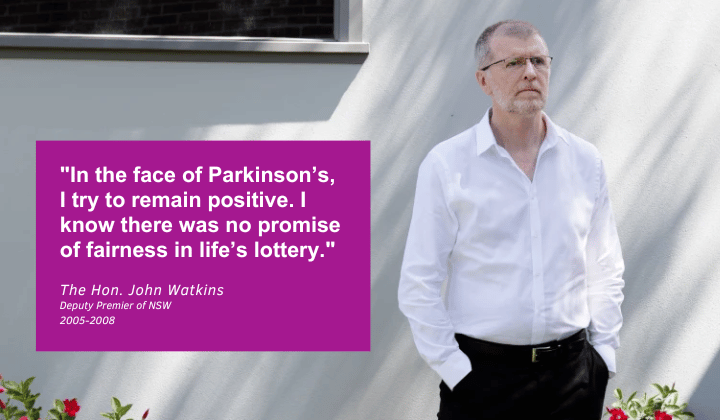Identifying and preparing future Support Group Leaders

Shout or you’ll be without!
5th April 2021
Try free daily Laughter Yoga via Zoom
5th April 2021Identifying and preparing future Support Group Leaders

Identifying and preparing future Support Group Leaders
At this time of year Support Groups are planning meetings to select their Leadership Team (sometimes called the Committee). Two questions frequently come up:
- How do we identify and prepare future Leaders of our Group?
- What do I do if I need to step down and nobody else wants to be a Leader?
Succession planning is the process for identifying and developing future Support Group Leaders. These people are potential replacements for existing Leaders when they no longer wish or are able to stand for re-election to the role.
Succession planning is important for maintaining the longevity of your Group so it can continue supporting current and future participants living with Parkinson’s in your community. It also helps to attract and retain participants in your Group.
The key steps in succession planning are:
- Be proactive. Don’t wait until the last minute to identify a pool of possible successors for the Support Group Leader role.
- Keep an open mind and don’t look for ‘another you’. Just because you have been successful with your skills and personality, it does not mean that the next in line should use the same approach.In fact, as Groups evolve, they may need different leadership styles at each stage of their development. Take this into account and look for successors who have a variety of different skills and approaches.
- Start sharing your vision, skills and knowledge before the transition phase begins. Doing so will ensure a smooth hand-over rather than a last-minute scramble. One way of developing potential future leaders is to start routinely delegating tasks and roles to them. Delegation will help them to develop confidence, knowledge and skills that will pay off for your Group in the future.
- Provide encouragement to potential future leaders in front of other Group members. It is a morale booster for all concerned and communicates that you have the best interests of the Group at heart.
- Do trial runs of your succession plan. Need a rest, going on holidays or being admitted to hospital? Then delegate the Support Group Leader role to one of your future leaders while you are away.
So, what happens if you genuinely have no one willing or able to consider taking up the leadership role?
Then perhaps it is time to either change the style and culture of the Group – or to look for leadership outside your pool of current participants.
Ask your Group participants if they would feel more comfortable transitioning to a purely social group — catching up for meals or a cuppa at a favourite local café without a structured meeting.
Or if your Group wishes to maintain some structure and continue to benefit from well-organised education, information sharing and activities, consider looking in your local community for a potential facilitator.
Among the more than 80 Parkinson’s NSW Groups we have several which benefit from the involvement of Allied Health professionals as facilitators – including Nurses, Occupational Therapists and Physiotherapists.
If you are in a community where there are few local Allied Health resources, consider seeking out a community service volunteer who may wish to contribute. Start by approaching local service clubs like Lions or Rotary, or ask around at your local churches, Local Government Community Support office or Community Centres.
Need assistance with Support Group Leadership succession planning? Contact:
Felicity Jones
Support Group Coordinator
T: 02 8051 1900
E: supportgroups@parkinsonsnsw.org.au
Note: Other important information about Support Group leadership is included in the Parkinson’s NSW Support Group Operations Manual which has been issued to every Support Group.



